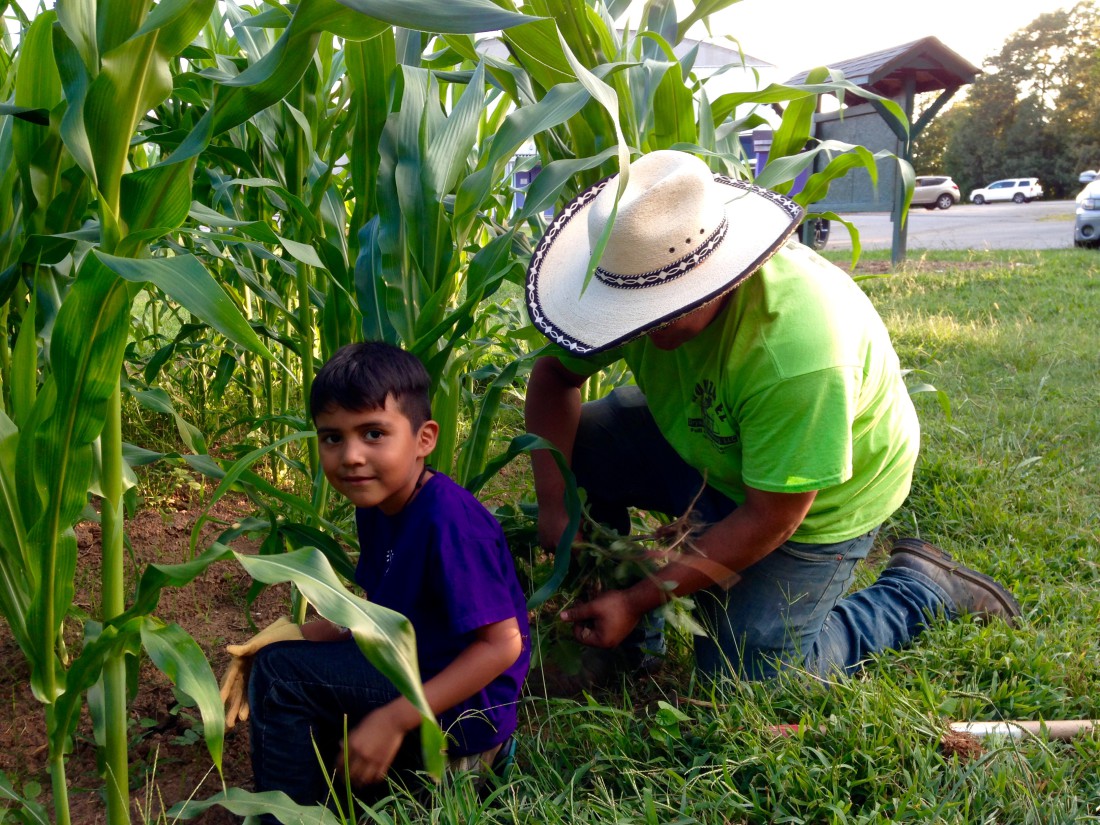In 2015, Asheville’s community gardens coalesced. The goal of uniting? Help each other through the obstacles and challenges they all face and pool vital resources — and, in turn, become their own community.
And that’s exactly what’s happened since the urban-agriculture nonprofit Bountiful Cities officially formed the Asheville Buncombe Community Garden Network.
“There has definitely been an increased connectivity between the gardens,” says coordinator Carolina Arias. She says that, in just two years, the network has launched and stocked seed and tool libraries and hosted successful monthly workshops and community workdays.
Recently, Bountiful Cities applied for and received grant money to distribute to a dozen of its roughly 35 members for permanent infrastructure projects. Many opted for drip irrigation, and garden groups familiar with the watering method stepped in to help get the systems installed.
“That’s a microexample of the network in action,” Arias says, “getting resources, sharing resources, sharing knowledge and skills.”
But the network itself also needs support. Enter its first fundraiser, a garden tour and celebration, Saturday, Sept. 16. Tour-goers will have the opportunity to visit four unique community gardens and take part in activities at each. A portion of proceeds will directly benefit the participating gardens.
According to Arias, each of the gardens has its own special twist. The Joyner Community Garden, she explains, is an example of a thriving neighborhood garden, while the Hall Fletcher Elementary School Garden demonstrates how gardens can benefit schools and young students. The new Emma Community Garden is run by a Latino community through Nuestro Centro and features crops that are culturally relevant to that community. And the Southside Community Garden, located in a historically African-American neighborhood, is situated among a hotbed of food-system activity, making way for even more community connections.
In fact, Southside Kitchen Community Cuisine — a social enterprise from Green Opportunities — is right next door. Workers will take the short trip over to cater a special dinner in the garden space that evening, which will feature the bounty of several community gardens and serve to applaud their achievements.
“There is no one way to garden, and that’s what were trying to show,” says Arias. “Folks are growing food but in all sorts of different ways, styles and approaches in Asheville.” She adds that she’s excited for attendees to see the vital work these gardens are doing and that she hopes the network can continue helping sustain area community gardens, which often have limited budgets and difficulty surviving.






Before you comment
The comments section is here to provide a platform for civil dialogue on the issues we face together as a local community. Xpress is committed to offering this platform for all voices, but when the tone of the discussion gets nasty or strays off topic, we believe many people choose not to participate. Xpress editors are determined to moderate comments to ensure a constructive interchange is maintained. All comments judged not to be in keeping with the spirit of civil discourse will be removed and repeat violators will be banned. See here for our terms of service. Thank you for being part of this effort to promote respectful discussion.